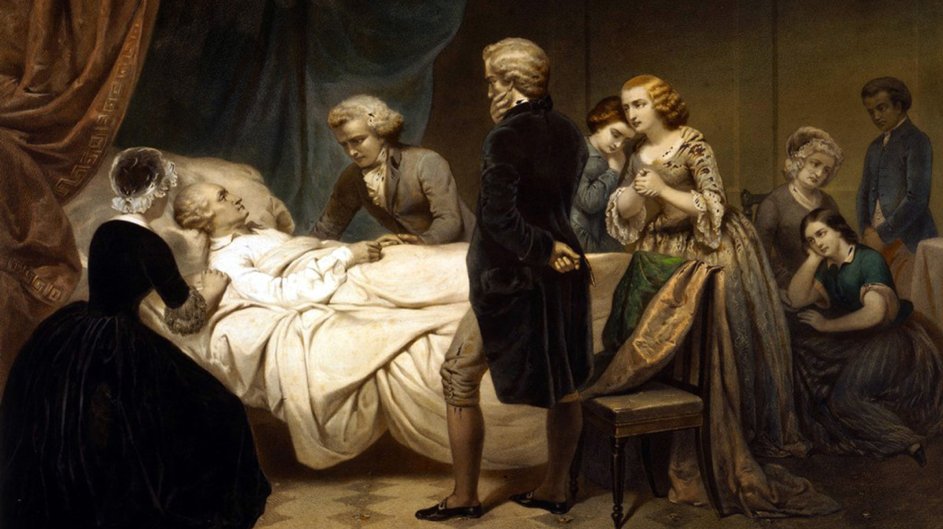Today is the anniversary of George Washington’s death. How did he die? He caught a throat infection. Then his doctors decided to drain 2.5L of blood (2/3 of a gallon, about half his blood). Somehow he didn’t make it. Why would his doctors—the best available—do such a thing? (1/9)
Maybe they were following Galen’s suggestions? The famous Greco-Roman physician, known for developing the theory of humors, was big on bloodletting. Like, really big. He recommended it for everything from headache to loss of speech. Or hemorrhage (!!). (2/9)
Could these doctors (and countless others throughout Western history) have been so gullible as to accept these absurd theories and inflict potentially lethal cures to thousands and thousands of hapless patients? (3/9)
No. The truth is even weirder. You don’t need a fancy theory to practice bloodletting. In fact, about a third of the world’s culture have practiced bloodletting in one form or another—without having ever heard of Galen or other ancient physicians. (4/9)
Bloodletting is intuitively compelling. We gave US participants stories about a guy (in Amazonia) who got a headache, cut his head by accident, felt better the day after, and we asked them to repeat the stories in game of telephone. (5/9)
The stories tended to turn into full-blown bloodletting, with a voluntary cut that cures the headache. (6/9)
In most cultures, bloodletting is quite harmless, the bleeding a mere trickle. Still, why do it at all? When you recover from an illness, it’s tempting to look for an explanation. Maybe some bodily liquids came out of your system before you got better? (7/9)
Our instincts tell us that bodily liquids are, as a rule, bad. If bad stuff came out, would this be why we feel better? This intuitive (but typically mistaken) explanation would help account for the cultural success of bloodletting, but also emetics, laxatives, or sudation. (8/9)
On the intuitiveness of bloodletting, see our paper with @HelenaMiton and Nicolas Claidière https://papers.ssrn.com/sol3/papers.cfm?abstract_id=2560786
On the suckiness of old school medicine https://www.amazon.com/Bad-Medicine-Doctors-Doing-Hippocrates/dp/0199212791/
On the fact that people (incl. doctors and patients) aren’t gullible https://www.amazon.com/Not-Born-Yesterday-Science-Believe/dp/0691178704/
(9/9)
On the suckiness of old school medicine https://www.amazon.com/Bad-Medicine-Doctors-Doing-Hippocrates/dp/0199212791/
On the fact that people (incl. doctors and patients) aren’t gullible https://www.amazon.com/Not-Born-Yesterday-Science-Believe/dp/0691178704/
(9/9)

 Read on Twitter
Read on Twitter





